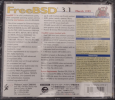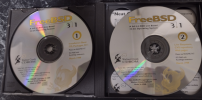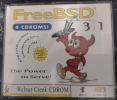In the short term: I am looking at FreeBSD as an alternative for running jails/containers and VMs. I have used Linux for a long time but I am not enjoying using it as a VM host (using Proxmox at the moment) so far.
In the long term I am not happy with some aspects of where Linux is going and it looks like BSDs are simpler and lighter for servers. I am probably going to stick with Linux for desktops but am thinking of switching to a distro that does things a little differently (Void most likely, I might just try Gentoo, and NixOS has its own appeal). In the past I have mostly used Debian and Debian derived distros, although I currently have Manjaro on my desktop (and I rather like using a rolling release on PCs.
I am probably be going to be asking some questions about Bhyve and Byve management tools soon, which is why I joined the forums at this point - been lurking a while.
In the long term I am not happy with some aspects of where Linux is going and it looks like BSDs are simpler and lighter for servers. I am probably going to stick with Linux for desktops but am thinking of switching to a distro that does things a little differently (Void most likely, I might just try Gentoo, and NixOS has its own appeal). In the past I have mostly used Debian and Debian derived distros, although I currently have Manjaro on my desktop (and I rather like using a rolling release on PCs.
I am probably be going to be asking some questions about Bhyve and Byve management tools soon, which is why I joined the forums at this point - been lurking a while.





